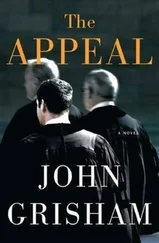“And your parents don’t mind?” Hardie asked with some uneasiness.
“Not at all. Relax. It’s just a law office.”
“That’s easy for you to say, Theo, but I’ve never been in a law office before. My dad is a minister. And his father was a minister.”
Theo had met Reverend Charles Quinn at a Scout function and thought he was pretty cool. “Relax, Hardie. You may be in a real law office, but I’m not a real lawyer, so I can’t charge anything.”
“That’s good to hear. I wasn’t planning on hiring anybody. I’m just looking for information. I’m sure my parents will talk to a lawyer, and pretty soon. It’s just that we’re scared right now.”
“Here’s the deal,” Theo said, getting down to business. “Eminent domain is an old legal idea that’s been on the books forever. It means the state has the right to take land when it can prove that it needs the land. The state has to pay a fair price to the landowners, but the landowners can’t stop the state from taking their land.”
“That’s outrageous. Who thought up that law?”
“Somebody in England, a long time ago. It’s actually not such a bad law, because if the state can’t take land when it needs to, then nothing would ever be built. Think about it. Highways, bridges, dams, parks, lakes—if one or two landowners said no, then none of these projects could go forward.”
“You don’t understand, Theo. My grandparents are still on this farm. They live in this great old white-frame house where we all gather for the holidays. I’ve spent the night there with my cousins a thousand times. We’ve built tree houses, zip lines, forts, bike jumps, everything you can think of. There is a long front yard where we play tackle football, baseball, Frisbee, golf, soccer, lacrosse, you name it. There are two ponds stocked with more fish than we can ever catch, and we fish there at least once a month. We’ve even ice fished on the front pond in the winter. We play hockey on the pond when it’s cold enough. Near the house is a small barn where my grandfather keeps two ponies, Belle and Daisy, and a horse named Captain. I’ve been riding these guys since I could walk.”
Hardie was leaning forward on his elbows, gesturing wildly with his hands. His voice was rising and shaking, and for a moment Theo thought Hardie might get choked up and start crying. He went on, “There’s a place we call the Campsite. It’s on the banks of Red Creek, in a bend in the river, and every cousin in my family, boys and girls, gets to camp out there on his or her fifth birthday. It’s a family ritual. My dad and my uncles set up camp and all of the older cousins show up, and for two nights we have this big family birthday party. We cook over a wood grill. We tell stories around a campfire, and my uncle Jack can tell ghost stories that will scare you so bad you can’t breathe. My uncle Henry knows every star in the sky, and we’ll lie on our backs for hours looking at the constellations. My first merit badge was Astronomy because I’ve known that stuff all my life.”
Hardie paused to catch his breath, then, slowly, he wiped a tear. “I’m sorry, Theo.”
“It’s okay, Hardie. I understand.”
Hardie bit his lip, then continued: “My father and grandfather wanted us to appreciate nature and to respect the land. They took us hunting and fishing, still do. I killed my first deer when I was eight years old, then I watched my father clean it and save the meat. He made venison sausage and took it to the homeless shelter. We’ve never killed animals just for the sake of sport. We fish the ponds and Red Creek for bass, bream, and crappie, and I could clean and grill them in a skillet over a fire when I was ten years old. This is our land, Theo. No one has the right to take it.”
Yes they do, Theo thought, but let it pass.
“Along the front drive there is a grove of sugar maples, and in the middle of it is a cemetery, a little square with a white picket fence around it. That’s where all the Quinns are buried. Dozens of small tombstones, all lined up in neat rows. My great-grandparents, side by side, and next to their parents. Aunts and uncles. Edward Quinn, who died in the Second World War. Bob and Holly Quinn, great-aunt and uncle, killed in a car wreck in 1985, long before we were born. You can walk through the cemetery and relive the history of my family. Every July the Fourth we have a big cookout on the farm, and just before dinner we all walk down to the cemetery to place flowers on the graves and pay our respects. My dad has a cousin, Daniel Quinn, who’s retired, and his job is to cut the grass and maintain the cemetery. What happens to the graves, Theo, to the cemetery? Surely the state can’t take that part of the property. That’s not right.”
Theo squirmed a bit and said, “I may have to do some research, Hardie, and I’ll probably talk to my dad because he’s a real estate lawyer and knows a lot about eminent domain, but I don’t think there is a good answer, or at least the answer you want to hear. If the state takes the property, then it owns it in every way. They’ll send in the bulldozers and flatten everything.”
“What about the graves, Theo?”
“I’ll have to ask my dad.”
Hardie sat still for a long time and gazed at the table, his thoughts far away. Finally, he said, “The house goes back a hundred and fifty years. My father has two sisters and two brothers, and since he’s the oldest he gets the house when my grandparents are gone. Since I’m also the oldest, I’m supposed to get the house one day. It’s the family tradition and it’s worked well for a long time. It’s a great old house and getting to live there is an honor, but you also have to take care of the farm. And that’s a lot of work. What happens to the house, Theo?”
Theo was getting tired of tough questions he couldn’t really answer. “I guess I’ll have to check with my dad,” he said, though he suspected he knew the truth. But Hardie was upset and Theo did not want to make things worse. After the state takes the land, the state can do whatever it pleases.
Hardie continued: “My parents were discussing this bypass last night over dinner.”
“Mine too.”
“It’s being pushed by some trucking companies north and south of Strattenburg. They hate coming through town on Battle Street because they get clogged up in traffic. They think a bypass around town will make it easier to haul freight and do all sorts of wonderful things for their business. They give money to the politicians, including the governor, and so the politicians pull the right strings, and here we are with the state taking away our farm.”
“I think my mother would agree with that. Not so sure about my dad.”
“And there are also these local business guys who think they can make a buck off the bypass. Think about it. Two hundred million dollars is about to be spent right here in Strattenburg, and so a lot of folks are jumping on board.”
“Like who?”
“Like construction companies, bridge builders, equipment salesmen, companies that sell materials. My dad says these guys will go nuts in support of the project. The economy is down, business is slow, and now suddenly there is this huge project. My dad says it’s just a typical government pork scam. The politicians go for the votes while the businessmen scramble to make a buck. Meanwhile the taxpayers get stuck with the bill for another bad project.”
“What’s pork?” Theo asked.
“According to my dad, pork is when government money is given to politicians who use it to build projects in order to get votes in order to stay in office. Sometimes the projects are good, but often they aren’t really needed. Pork is a bad word now in politics, but the politicians are still chasing the pork, according to my dad.”
Читать дальше












